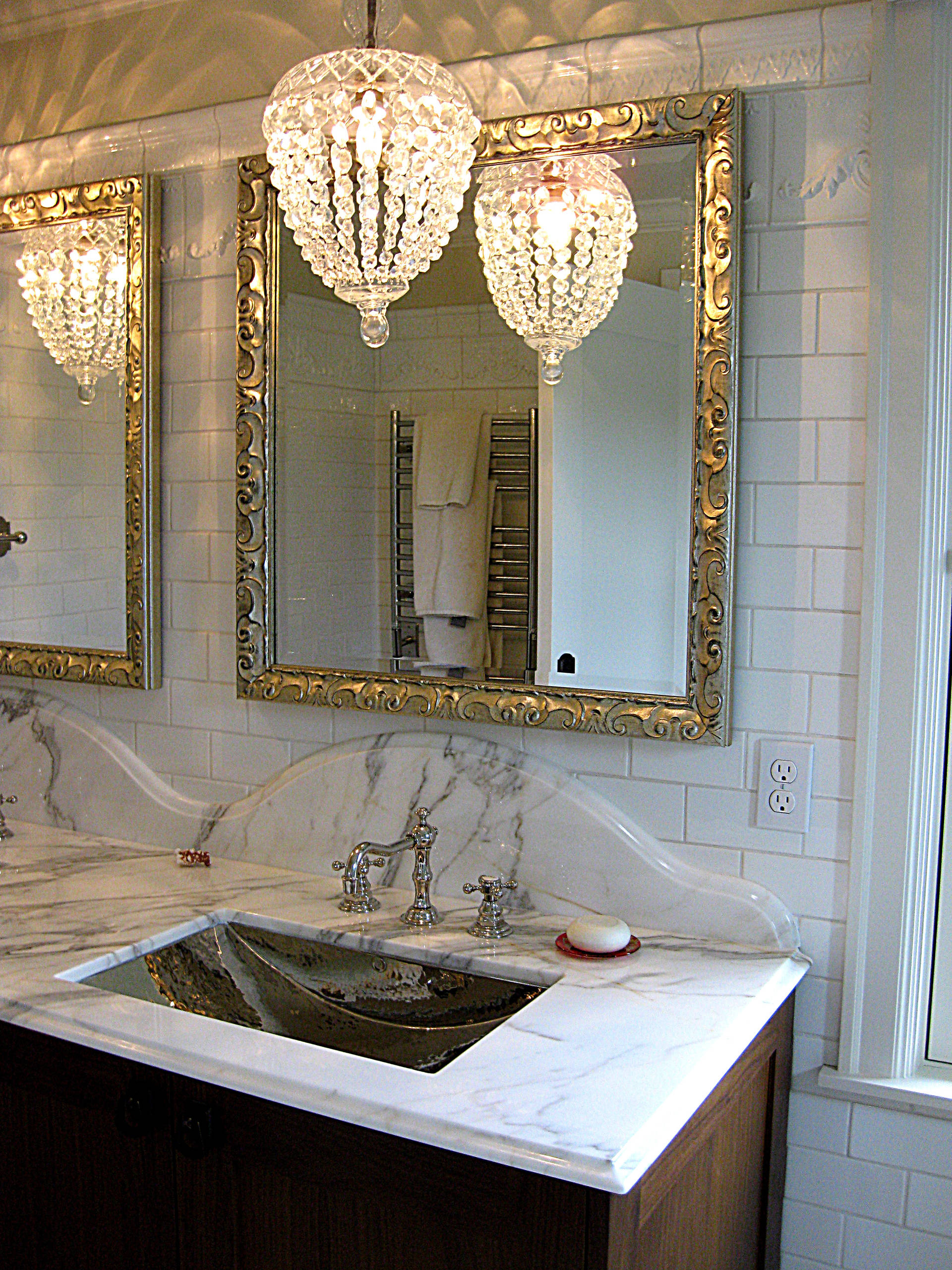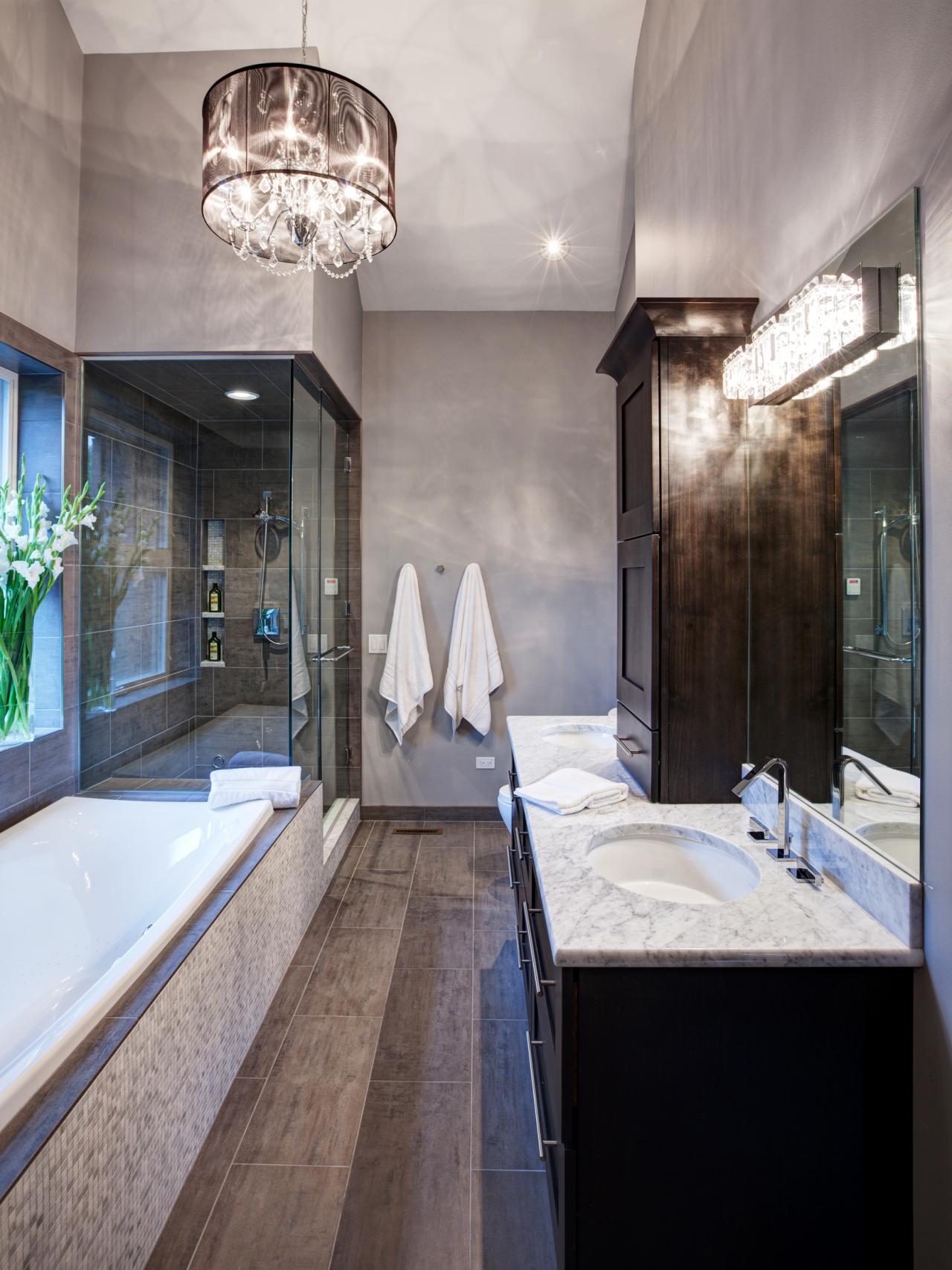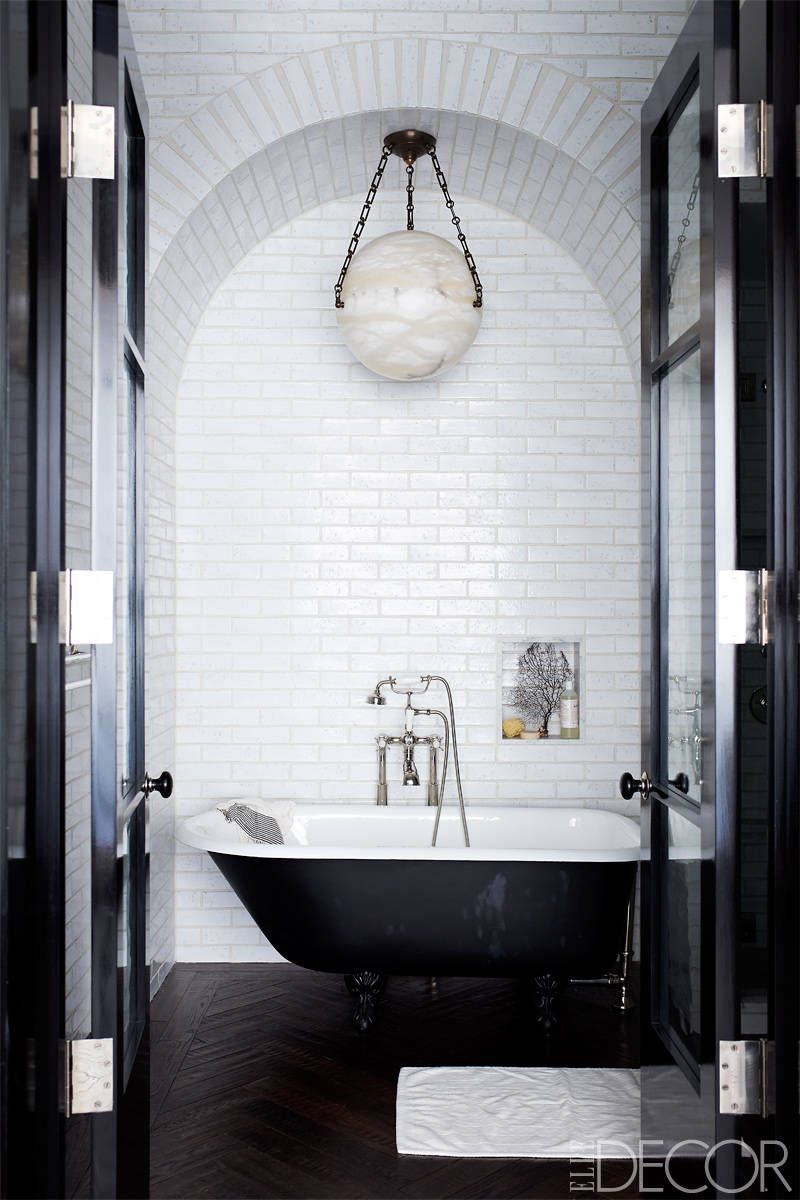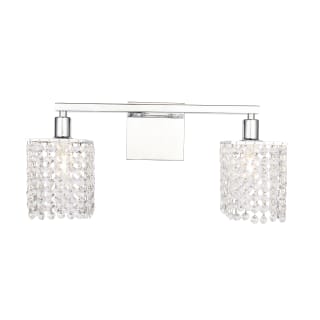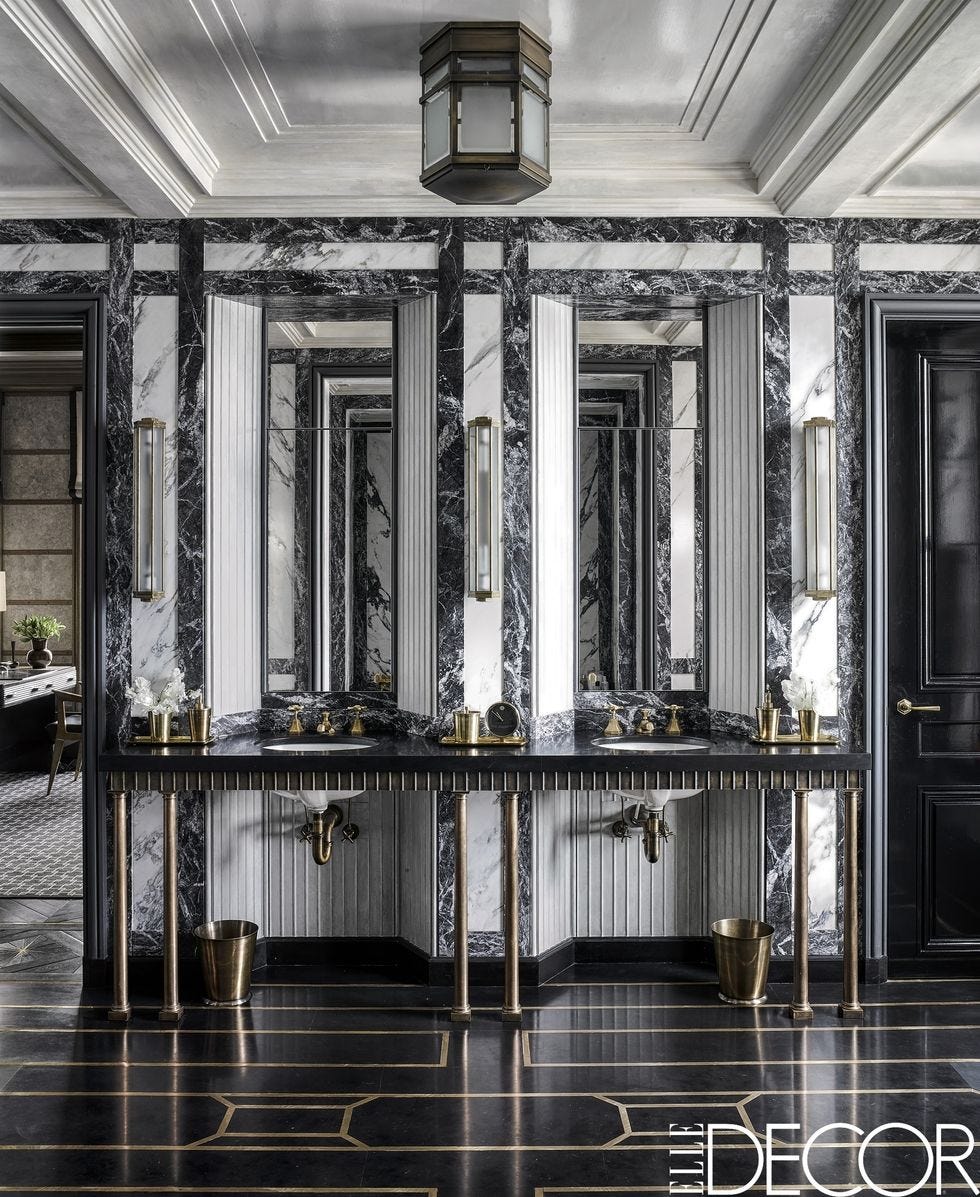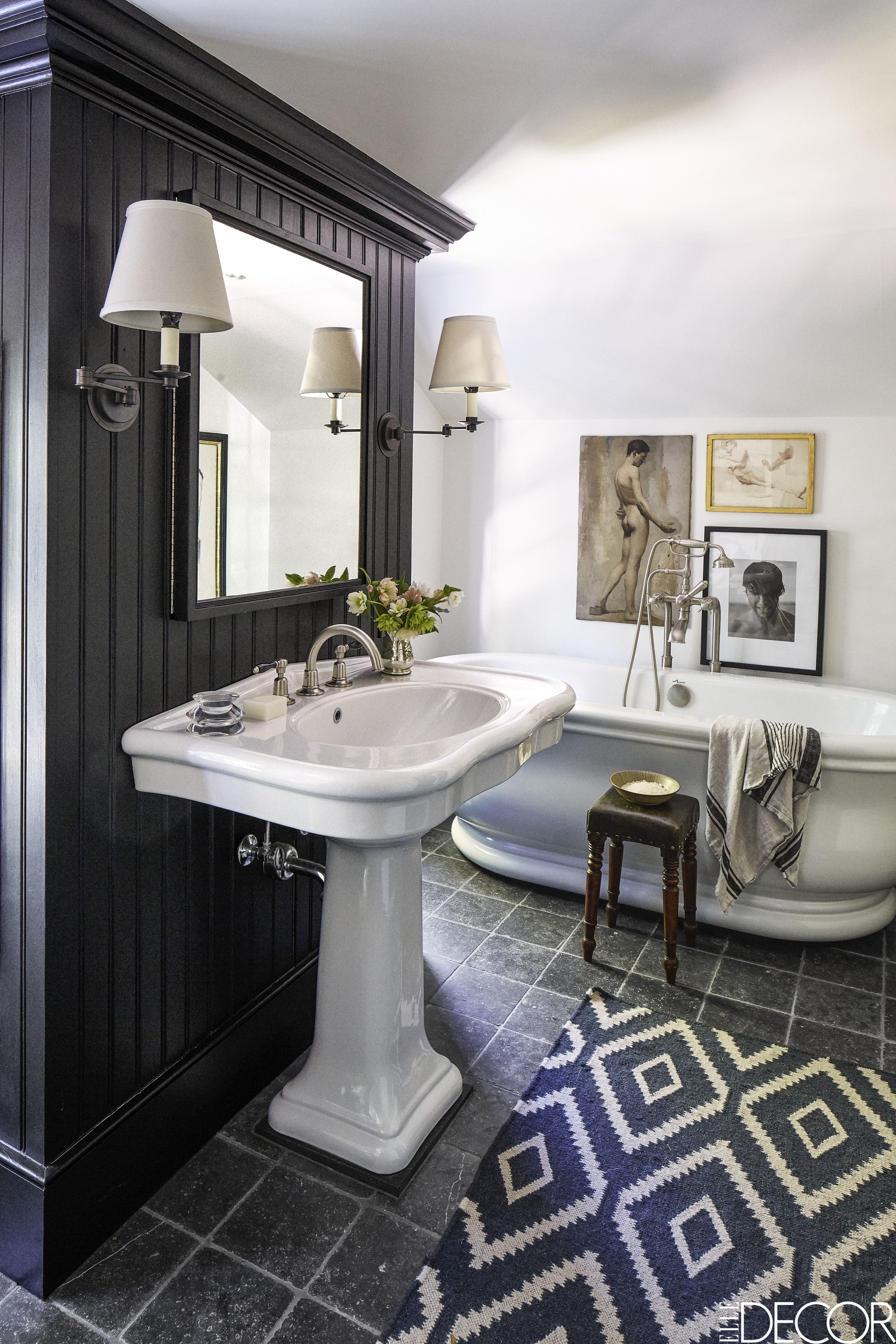Bathroom lighting is an essential aspect of interior design that significantly influences the ambiance, functionality, and aesthetic appeal of a space. Elegant bathroom lighting fixtures combine functionality with style, creating a sophisticated and inviting environment. Whether renovating an existing bathroom or designing a new one, understanding the various aspects of bathroom lighting can help in making informed decisions that enhance the overall experience.
Types of Elegant Bathroom Lighting Fixtures

Vanity Lighting
Vanity lighting is a crucial component in bathroom design, primarily focused on providing ample illumination for grooming tasks such as shaving, applying makeup, and hair styling. The key to effective vanity lighting lies in its placement and the quality of light it emits. Fixtures should ideally be placed on either side of the mirror to eliminate shadows on the face. Sconces or vertical fixtures are popular choices as they provide an even spread of light.
The elegance in vanity lighting comes from the design and finish of the fixtures. Sleek, contemporary sconces with frosted glass shades offer a modern and elegant touch, while vintage-inspired fixtures with brass or bronze finishes add a touch of timeless charm. Additionally, integrating dimmable options allows for the adjustment of light intensity, enhancing the overall ambiance of the bathroom.
Choosing the right bulbs is equally important. LED bulbs are a popular choice due to their energy efficiency, longevity, and ability to produce a bright, white light that mimics natural daylight. This type of lighting is ideal for tasks requiring precision and clarity. For a more ambient effect, warmer LED bulbs can be used, providing a soft, relaxing glow.
Finally, the style and size of the vanity lighting fixtures should complement the overall bathroom decor. Whether opting for minimalist designs with clean lines or more ornate fixtures with intricate detailing, the goal is to achieve a harmonious balance that enhances both functionality and aesthetics.
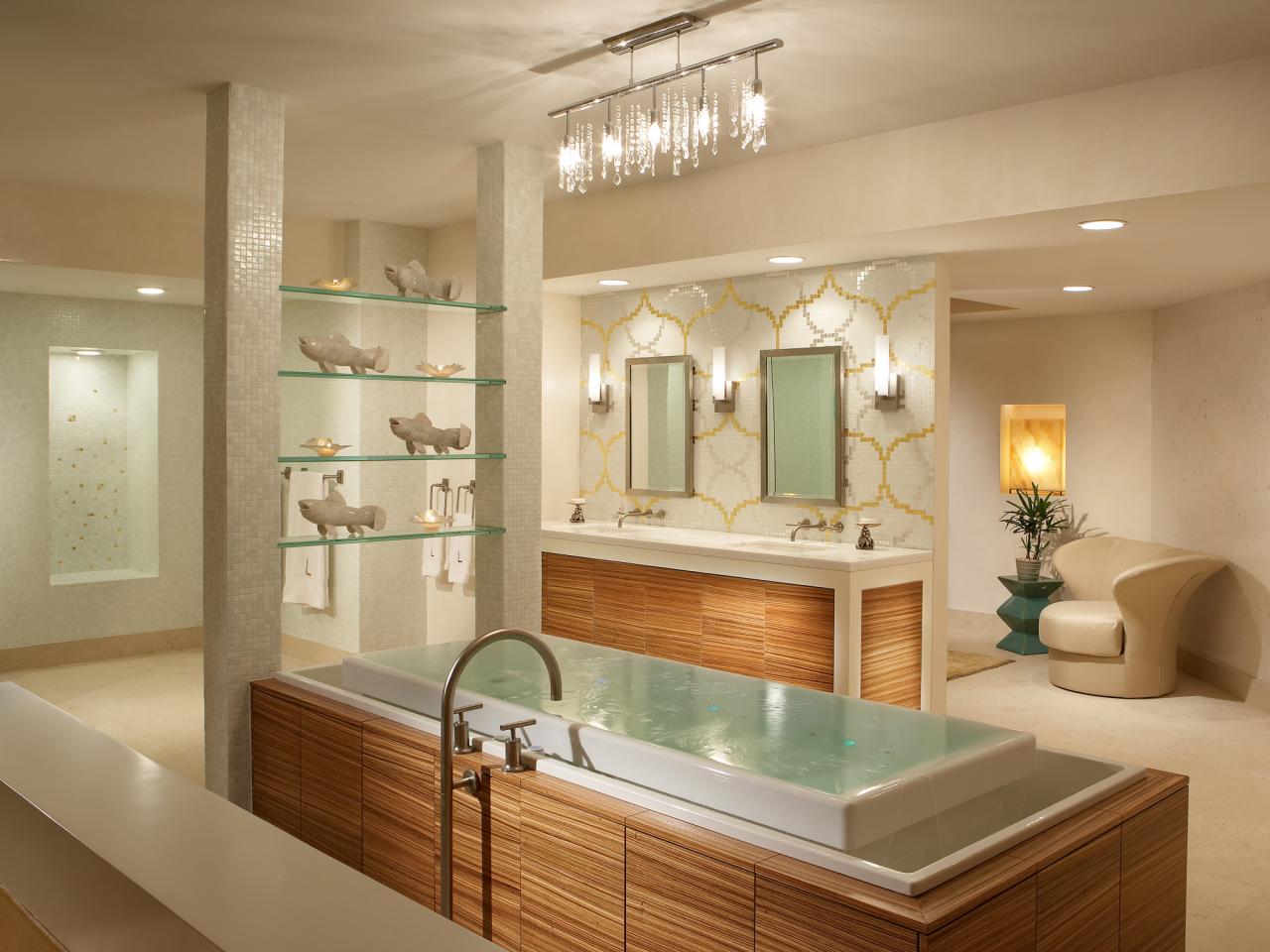
Ceiling Lighting
Ceiling lighting in a bathroom serves as the primary source of illumination, providing general light coverage for the entire space. Elegant ceiling lighting fixtures come in various forms, including flush mounts, semi-flush mounts, and chandeliers, each offering a unique style statement. The choice of fixture depends on the bathroom size, ceiling height, and desired aesthetic.
Flush mount fixtures are ideal for bathrooms with lower ceilings, as they sit close to the ceiling and provide ample light without overwhelming the space. These fixtures are available in a range of designs, from simple, modern discs to more decorative options featuring intricate glass or metalwork. The elegance of a flush mount lies in its ability to blend seamlessly with the ceiling while still offering a stylish touch.
For bathrooms with higher ceilings, semi-flush mount fixtures are an excellent choice. These fixtures hang slightly below the ceiling, adding depth and dimension to the space. They come in various styles, from contemporary to traditional, allowing for greater design flexibility. Semi-flush mounts can incorporate materials such as crystal, brass, and polished nickel, adding a luxurious feel to the bathroom.
Chandeliers, often associated with grand dining rooms and entryways, can also make a bold statement in a bathroom. When chosen appropriately, a chandelier can add an unexpected touch of elegance and sophistication. Opt for smaller, more delicate designs that complement the bathroom’s scale. Crystal chandeliers, with their reflective surfaces, can enhance light distribution and create a stunning visual effect.
The placement and type of ceiling lighting should ensure even light distribution throughout the bathroom, eliminating dark corners and enhancing safety. Combining ceiling lighting with other types of fixtures, such as wall sconces and recessed lights, can create a layered lighting scheme that adds depth and character to the space.
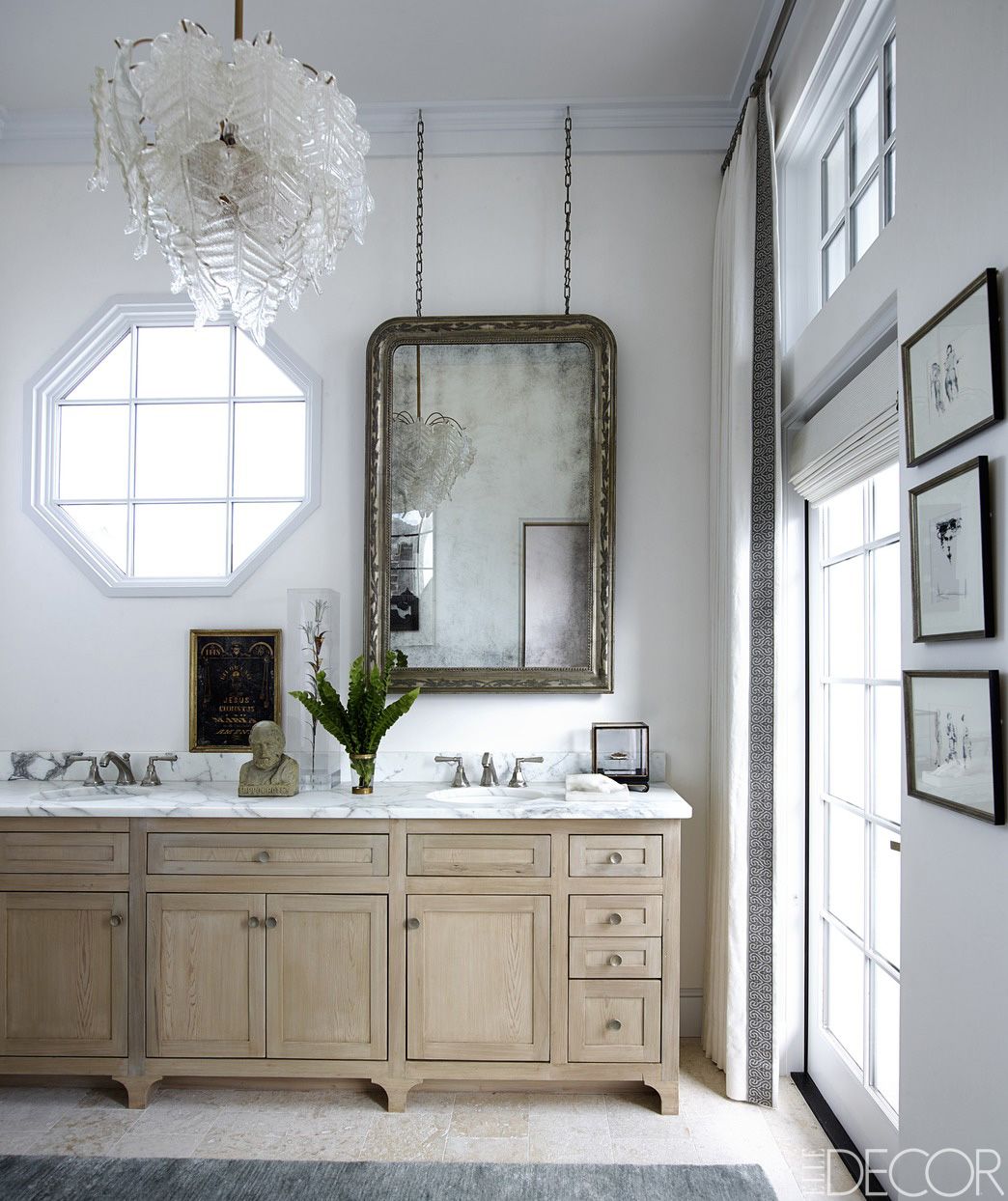
Accent and Decorative Lighting
Accent and decorative lighting play a vital role in enhancing the aesthetic appeal of a bathroom, highlighting architectural features, and creating a luxurious atmosphere. These lighting fixtures are not necessarily focused on providing functional illumination but rather on adding visual interest and enhancing the overall design.
One popular form of accent lighting is the use of LED strips or tape lights. These versatile lights can be installed under vanities, along the edges of mirrors, or within recessed niches to create a soft, ambient glow. LED strips are available in various color temperatures and can be dimmed to achieve the desired effect. The discreet nature of these lights allows them to enhance the elegance of the bathroom without overpowering the space.
Decorative pendants are another option for adding a touch of elegance. Hanging pendants can be positioned over a bathtub, in front of a mirror, or even in the center of the room to create a focal point. The design of the pendant should complement the overall style of the bathroom. For instance, glass pendants with a sleek, modern design can enhance a contemporary bathroom, while vintage-inspired fixtures with intricate detailing can add charm to a more traditional space.
Wall-mounted fixtures, such as sconces and lanterns, can also serve as decorative elements. These fixtures can be placed strategically to highlight specific areas, such as the sides of a mirror or along a hallway leading to the bathroom. The design and finish of these fixtures should harmonize with other elements in the room, creating a cohesive look.
Finally, incorporating natural light through windows or skylights can be considered a form of accent lighting. Natural light enhances the elegance of a bathroom by making the space feel larger, brighter, and more inviting. Using sheer curtains or frosted glass can maintain privacy while allowing soft, diffused light to enter, adding to the room’s overall ambiance.
Recessed and Track Lighting
Recessed and track lighting offer versatile solutions for both general and task lighting in a bathroom. These fixtures are characterized by their sleek, unobtrusive design, making them ideal for modern, minimalist spaces. Their flexibility allows for strategic placement to achieve optimal illumination and enhance the bathroom’s aesthetic.
Recessed lighting, also known as can lights or downlights, is installed into the ceiling, creating a clean, streamlined look. These fixtures are excellent for providing even, ambient lighting throughout the bathroom. When installed above a shower or bathtub, recessed lights can ensure these areas are well-lit and safe. The use of wet-rated or damp-rated fixtures is essential in these moisture-prone areas to prevent electrical hazards.
To add elegance to recessed lighting, consider using trim kits with decorative finishes. Trim options in brushed nickel, chrome, or matte black can complement other bathroom fixtures and add a touch of sophistication. Adjustable or gimbal recessed lights can also be used to highlight specific areas, such as artwork or architectural features, providing both functionality and visual interest.
Track lighting, while often associated with modern industrial design, can also be adapted to suit elegant bathroom interiors. This type of lighting consists of a track system mounted on the ceiling, with adjustable heads that can be positioned to direct light where needed. Track lighting is particularly useful for highlighting specific areas, such as vanities, mirrors, or artwork. The flexibility of this system allows for easy adjustments and customization.
For an elegant touch, choose track lighting fixtures with sleek, contemporary designs and finishes that match other elements in the bathroom. Linear track systems with frosted glass shades or metallic finishes can add a modern yet sophisticated look. Additionally, incorporating dimmable track lighting can help create a relaxing ambiance, allowing for the adjustment of light levels to suit different moods and activities.
Common Mistakes to Avoid with Bathroom Lighting
Overlooking Task Lighting
One of the most common mistakes in bathroom lighting design is neglecting the importance of task lighting, especially around the vanity area. Task lighting is crucial for activities such as shaving, applying makeup, and grooming. Inadequate task lighting can lead to shadows and poor visibility, making these tasks difficult and frustrating. To avoid this mistake, ensure that vanity lighting is properly installed on both sides of the mirror to provide even, shadow-free illumination.
Ignoring Layered Lighting
Relying solely on a single source of light, such as a central ceiling fixture, can result in a flat and uninviting bathroom ambiance. Layered lighting, which combines ambient, task, and accent lighting, is essential for creating a well-balanced and elegant space. By incorporating various types of fixtures, such as sconces, recessed lights, and pendants, you can achieve a dynamic lighting scheme that enhances both functionality and aesthetics.
Choosing the Wrong Bulbs
The type of bulbs used in bathroom lighting fixtures significantly impacts the quality of light and the overall atmosphere. Using bulbs with the wrong color temperature can create an unflattering or harsh environment. For instance, bulbs with a high Kelvin rating (cool white or daylight) can make the bathroom feel clinical, while those with too low a rating (warm white) may not provide adequate illumination for tasks. Opt for bulbs with a color temperature between 2700K and 3000K for a warm, inviting glow that is also functional.
Neglecting Dimmability
A common oversight in bathroom lighting design is not including dimmable fixtures. Dimmable lights offer flexibility, allowing you to adjust the brightness according to different needs and moods. Bright lighting is essential for tasks, but a softer, dimmed light is preferable for a relaxing bath or nighttime use. Ensure that your bathroom lighting fixtures are compatible with dimmer switches to provide this level of control.
What are the best types of lighting fixtures for a small bathroom?
For a small bathroom, it’s important to maximize both functionality and space. Recessed lighting is an excellent choice as it provides ample illumination without taking up any physical space. Wall-mounted sconces on either side of the vanity mirror can also be effective, as they offer focused task lighting while freeing up counter space. Additionally, consider using LED strips under the vanity or along the mirror’s edges to create a sense of depth and enhance the overall aesthetic.
How can I ensure my bathroom lighting is both functional and stylish?
To achieve a balance between functionality and style, focus on layered lighting. Combine ambient lighting (such as ceiling fixtures or recessed lights) with task lighting (sconces or vanity lights) and accent lighting (LED strips or decorative pendants). Choose fixtures that complement the bathroom’s design theme, whether it’s modern, traditional, or transitional. Incorporating dimmable options also adds versatility, allowing you to adjust the lighting to suit different activities and moods.
Are LED lights suitable for bathroom use?
Yes, LED lights are highly suitable for bathroom use. They are energy-efficient, long-lasting, and available in a variety of color temperatures, making them versatile for different lighting needs. LEDs are particularly beneficial in moisture-prone areas like bathrooms because they generate less heat compared to traditional bulbs. When selecting LED fixtures, ensure they are rated for damp or wet locations to ensure safety and durability.
How do I choose the right color temperature for bathroom lighting?
The color temperature of bathroom lighting should ideally fall between 2700K and 3000K. This range provides a warm, inviting glow that is also suitable for detailed tasks. A color temperature closer to 2700K offers a softer, more relaxing light, while 3000K provides a bright, white light similar to natural daylight, which is excellent for grooming tasks. Avoid using extremely cool (above 4000K) or overly warm (below 2700K) bulbs, as they can create an uncomfortable or unflattering environment.
What are some tips for installing bathroom lighting fixtures safely?
When installing bathroom lighting fixtures, safety should be a top priority. Ensure that all fixtures are rated for damp or wet locations, particularly those near showers or bathtubs. Hire a licensed electrician to handle the installation, especially if new wiring or electrical changes are required. Use ground fault circuit interrupters (GFCIs) to protect against electrical shocks. Finally, follow the manufacturer’s instructions and local building codes to ensure safe and compliant installation.
Different Types of Bathroom Light Fixtures (Plus Lighting Tips)
Bathroom Lighting Ideas For Every Style – Modern Light Fixtures
Pretty Bathroom Lights u0026 Sink Bathroom light fixtures
Elegant Lighting LD7009
Elegant Bathroom Lighting Fixtures Luxury Bathroom Grab Rails
Bathroom Lighting Ideas For Every Style – Modern Light Fixtures
Bathroom Vanity Lights to Rejuvenate Any Bathroom Decor Style
Bathroom Lighting Ideas For Every Style – Modern Light Fixtures
Related articles:
